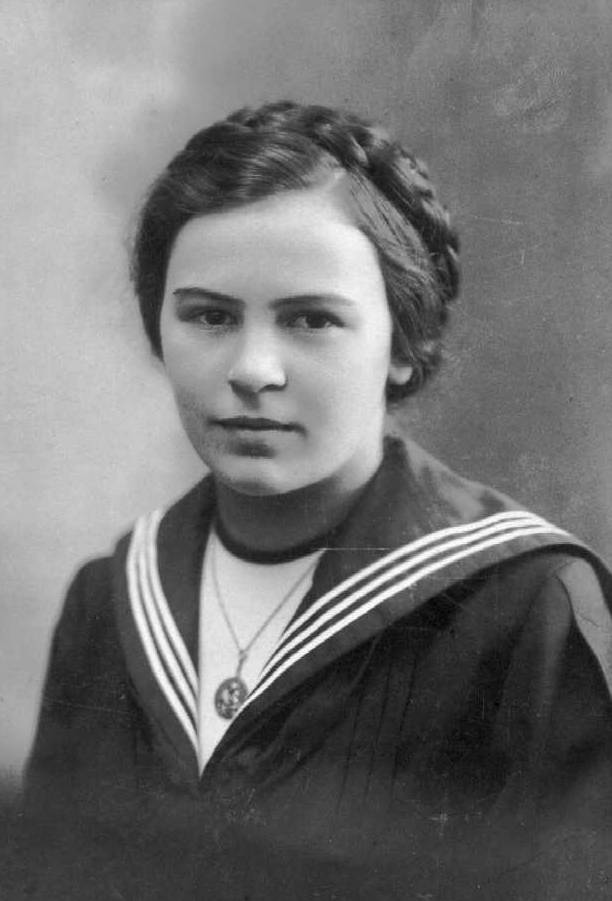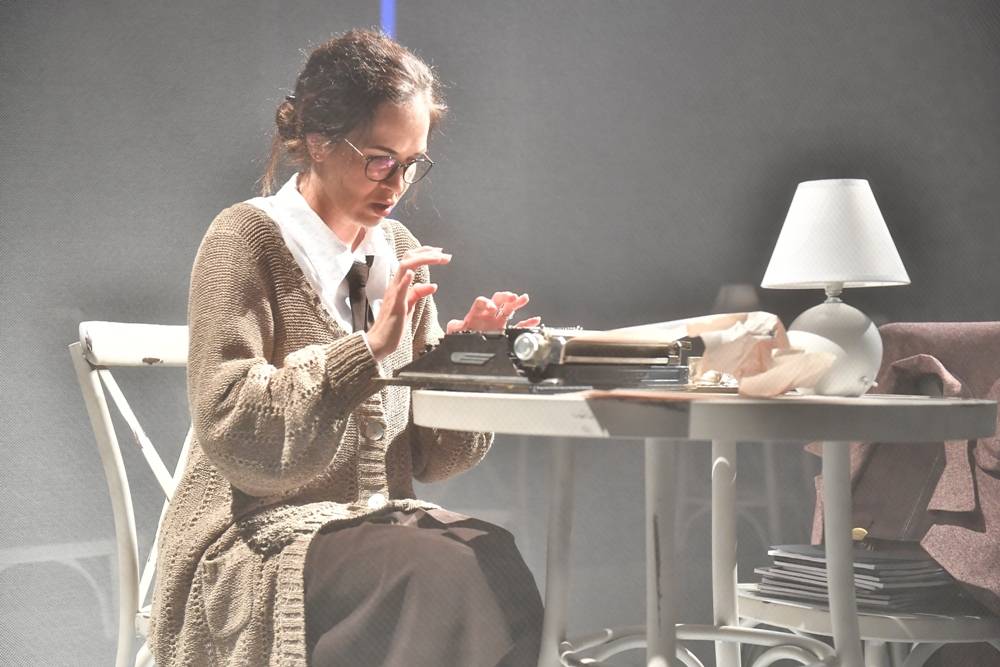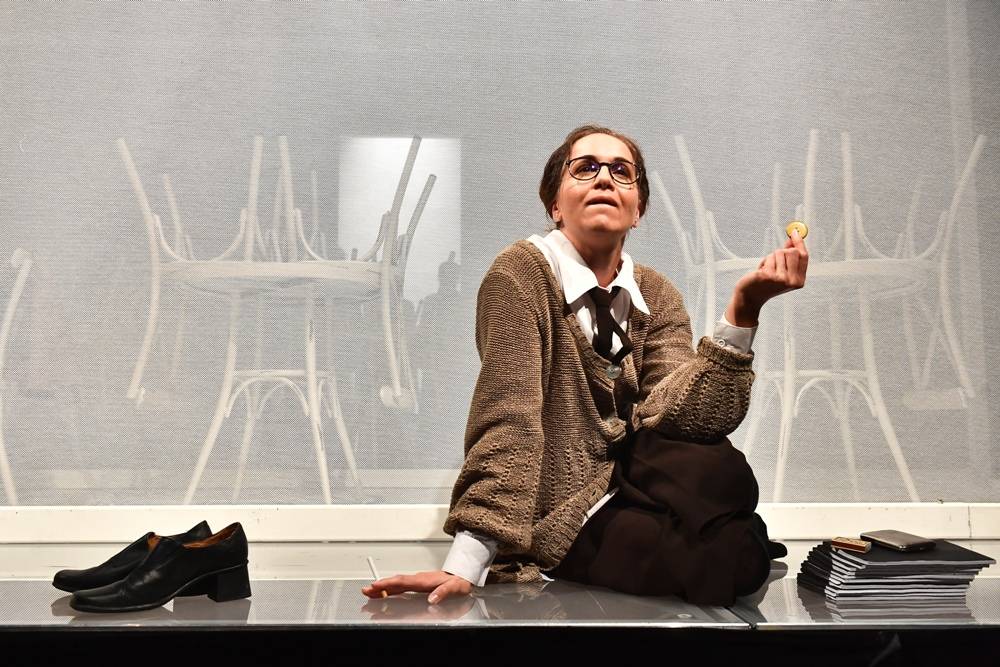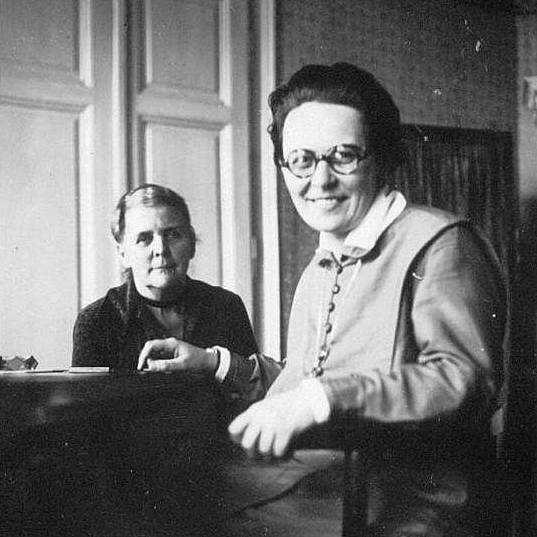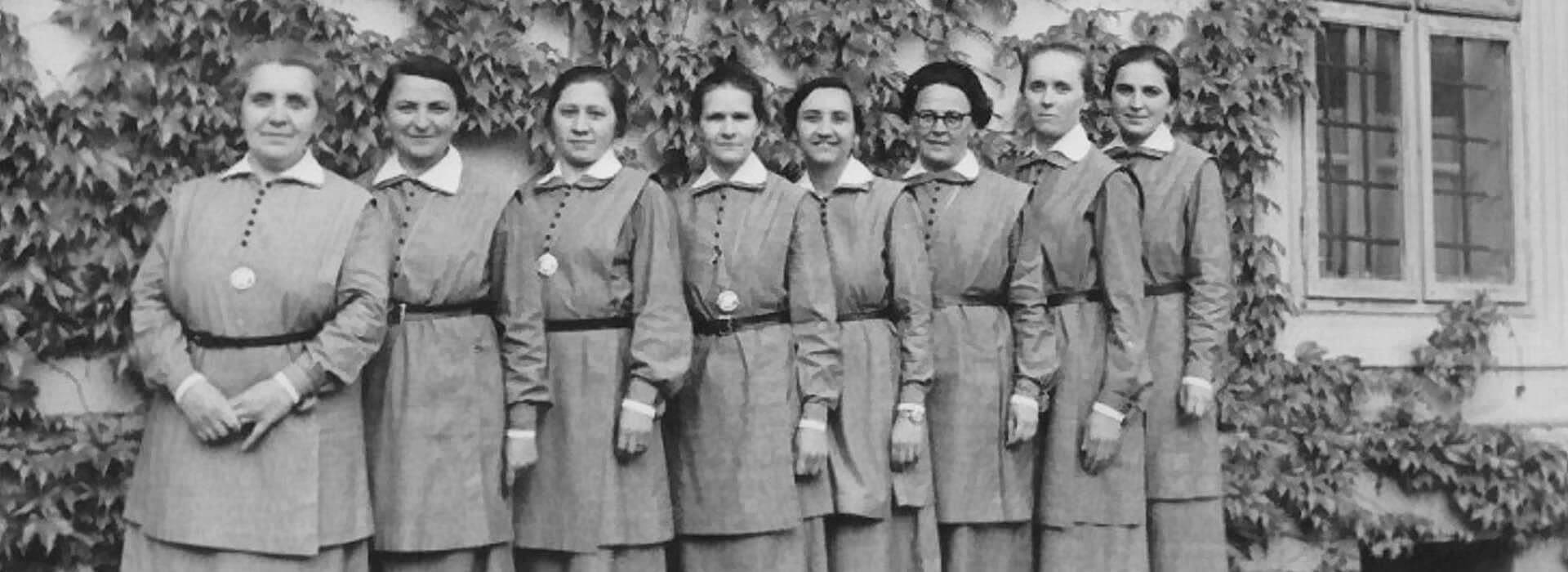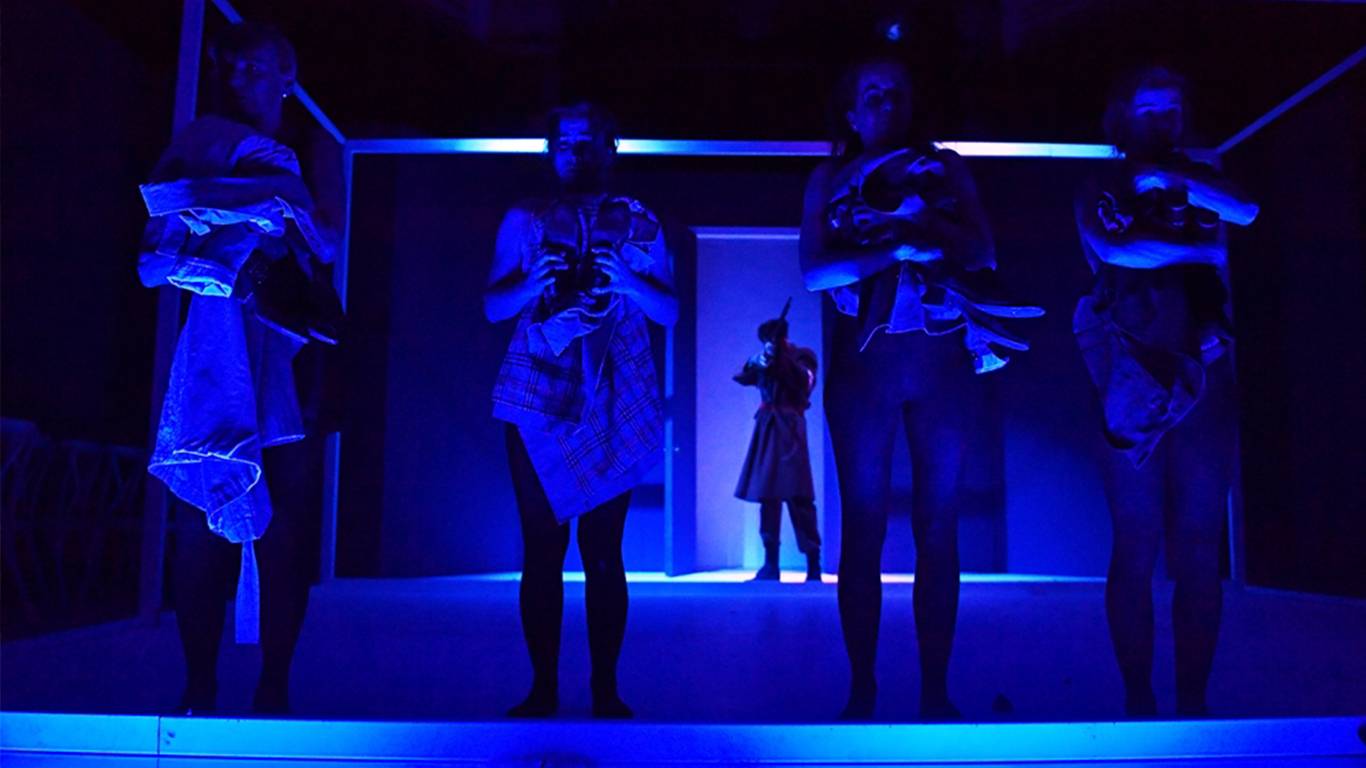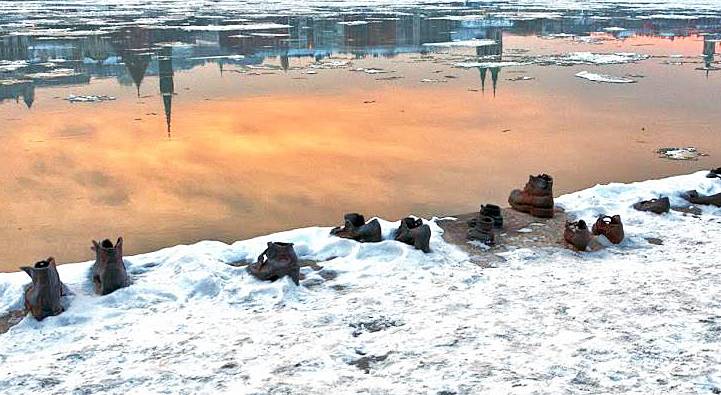BIOGRAPHY
Sara Salkahazi was born in Kassa, Hungary, now Kosice, Slovakia on May 11, 1899. A month later she was baptized in St. Elisabeth Cathedral in Kosice. She was the second child of her parents, Leopold and Klotild Schalkhaz, who were owners of the Hotel Schalkhaz in Kassa (today Kosice). She lost her father at the age of two, and her widowed mother took over leadership on the board of directors of the hotel; she needed the income to raise her three children.
Sara's childhood was best described by her brother Lipot: 'She was a tomboy with a strong will and a mind of her own; when it came to play she would always join the boys in their games or tug of war'. A schoolmate and friend of Sara described her as a funny, witty girl, who liked to joke a lot but at the same time she also showed deep social sensitivity, loyalty and perseverance. As a teenager she began to write plays and in the evenings, members of her family would often find her in her bedroom, kneeling in front of her bed, her head buried in her hands, sunk in deep thought and prayer.
She studied in Kosice and earned an elementary school teacher's degree - the highest available there for women at that time. As a young woman, Sara taught in school only for one year. For political reasons she left teaching and learned the trade of bookbinding. There she came in touch with the conditions of the poor, particularly that of women, and those who were forced into a minority situation. This deepened her sensitivity and consciousness to the issues of social injustice.
Sara started to write. She actively participated in the literary society of the Hungarian minority of Slovakia and became a journalist. She edited the official paper of the National Christian Socialist Party of Czechoslovakia. She was a member of the governing body of that party. Sara wrote short stories; her themes focused on the conditions of the poor; on moral issues regarding injustice; and on challenges to become more human and humane. At the same time, Sara lived the colorful life of a journalist, but she was not satisfied. She was in search of her true vocation.
For a few months she was engaged to be married, but after a while she returned the ring. She came to recognize that her deeper desires led her in a different direction. Christ was tugging at her heart, attracting her to dedicate all her love to him and to the service of the needy. She resisted for several years as the call implied giving up the lifestyle she came to love.
In 1927 she met the Sisters of Social Service in Kosice. In 1928 she completed a social course organized by these sisters. Then she wanted to join their Society. They considered her modern style and smoking strange, but it did not hinder her journey into the Society. Sara acknowledged that she had to change even at the cost of heavy fighting. In a short time, she stopped smoking and left the "freedom" offered by journalistic life in order to embark on the path of inner freedom that opened up to the soul that dedicates to God.
In 1929 she entered the Society of the Sisters of Social Service in Budapest. She took her first vows at Pentecost, 1930. Her motto: "Alleluia" captures her sentiments.
As a vowed member of the community Sister Sara started her apostolic service. Her first assignment was at the Catholic Charities Office in Kosice, where she worked in many different areas utilizing her many gifts. She supervised charity works; taught religion, worked as community organizer, especially among Catholic woman; gave lectures, published a periodical entitled: Catholic Woman. By the assignment of the Catholic Bishop's Conference of Slovakia she organized all the various Catholic women's groups into a national Catholic Women's Association. Besides all these, she found time to write. No wonder, she became completely exhausted. Her near burnout was misunderstood; her superiors doubted her vocation and refused to admit her to renewal of vows. This caused her profound suffering and humiliation. Nevertheless she continued to live the life of a Sister of Social Service without vows. Christ's love burning within her kept her faithful. She faced this trial peacefully, which eventually gave witness to the genuineness of her vocation.
I want to defend my soul from the coming difficulties. I don't ask, Lord ... but if you send them to me, I want to receive them with love. I want to prepare for it in advance, although a misunderstanding will affect me from either side ... Let me accept it as an opportunity that will connect me more and more with You!
Sara's diary
The only happiness is to be a child of God, it is happiness when everything else becomes nothing.
Sara wrote to her friend
I don't even ask to get to Brazil anymore, I only ask to live a holy life, serve holy the Lord God.
Sara's diary
As her love grew, a missionary desire awakened in her heart. The Hungarian Benedictines in Brazil were asking for Sisters to work in their mission. Sr Sara was ready to go. World War II however, hindered her plans to serve in Brazil. But in some sense sister Sara still became a missionary as a social worker in a very poor area northeast of Hungary.
At Pentecost 1940 Sister Sara committed herself for life to God and to the service of the needy as a Sister of Social Service. At her final vows she added to her motto words from Isaiah: "Alleluia! Ecce ego, mitte me (Here I am, send me)!"
The desire to sacrifice her life "in case of the time of persecution of the Church, Society and sisters" (quote from the prayer of the sacrifice of her life) was growing stronger and stronger. Finally she got the consent to do it. The sacrifice happend in the Chapel of the Holy Spirit in the Mother House of the Society in complete secrecy, in the presence of the leaders of Society at the end of 1943.
With Nazism in power since 1938, the political climate became more and more difficult and dangerous. The Sisters of the Society with the leadership of their foundress, Sr Margaret grabbed all means possible to rescue the persecuted: they were hiding people in their homes and institutions. Sara herself was hiding close to a hundred people in the hostels she was in charge of.
On December 27, 1944 the Working Women's hostel led by Sr Sara, at 4 Bokréta-Street in Budapest, was surrounded by the Nazis. They were looking for Jews and took four suspects and a religion teacher, Vilma Bernovits into custody. Sister Sara arrived home during the interrogation of the residents. She could have escaped the arrest, but instead she introduced herself as the one in charge of the house. She was carried off with the ones whom she wanted to shelter. On the evening of the same day all six of them were stripped naked and shot into the icy Danube. According to an eyewitness, before her execution Sister Sara knelt down, facing the executioners, and looking up into the sky, she signed herself with the cross. God accepted her sacrifice - nothing happened to any of the sisters who took part in the rescue of the Jews.
For this act of heroic love, the World Holocaust Remembrance Center awarded Sister Margaret Slachta and Sister Sara Salkahazi "In memoriam“ and they planted a tree of gratitude in the YAD VASHEM garden in their honor.



